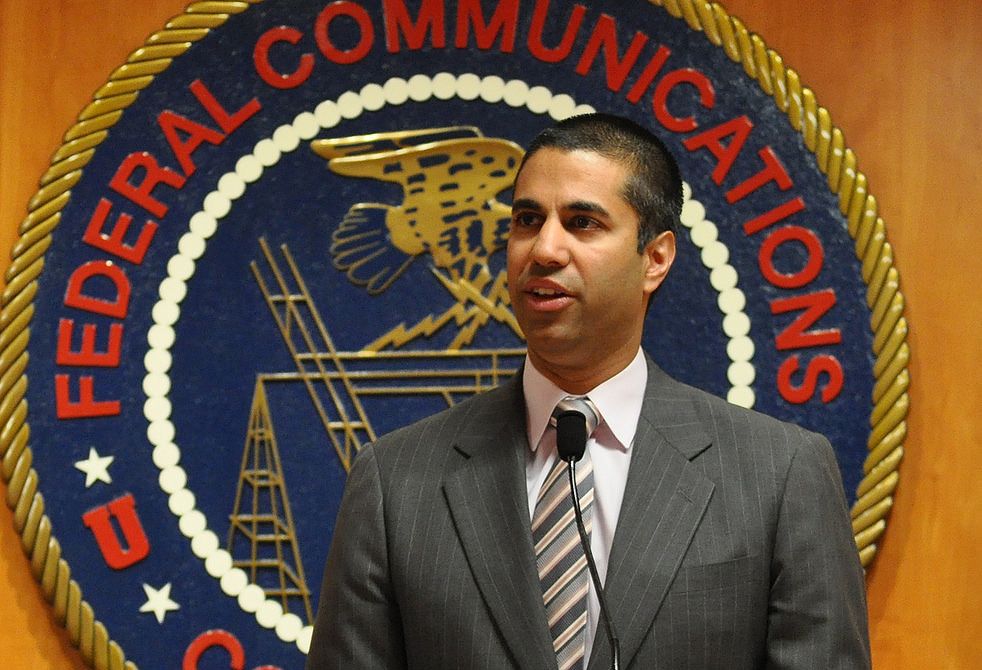What you need to know about net neutrality in 2019
📱
On June 11, 2018, the Federal Communications Commission repealed the rules protecting net neutrality. These rules prevent private ISPs from doing things like speeding up or slowing down traffic to specific websites, blocking access to law-abiding websites, or offering faster speeds to websites or to users who pay for the privilege. For example, ISPs like Comcast or Time Warner can’t force you to pay extra to stream Netflix Full HD like some cellular carriers do. Nor can they block the basic plan for the entire site and force you to pay higher priced plans to access them. If you have a 100 megabits per second plan, the ISP can’t have a say in how you use those 100 megabits as long as you don’t break the law.
So what will happen now? We haven’t seen a huge change in how ISPs operate since the FCC has removed these protections. But that doesn’t mean everything stands still. Activists are still arguing in favor of net neutrality, states are taking matters into their own hands, and some internet companies are taking actions that may already be protected by net neutrality. Here’s what you need to know heading into 2019.
Post-neutral America so far
The honest answer is that we don’t know exactly how ISPs have changed their practices because it’s hard to reliably determine whether content is prioritized or throttled. ISPs are not currently required to disclose such information. Some research shows that cellular service providers regularly curate and throttle video traffic(opens in a new tab).
In the US, we haven’t seen the rollout of tiered pricing for internet plans, but Portugal has. There, you may have to pay an additional monthly fee for video streaming, social media, and even email access. If it can happen there, it can also happen here.
The idea that looser rules mean more choices for consumers is questionable.
FCC Chairman Ajit Pai and critics of net neutrality claim it stifles innovation, reduces investment in the internet and disproportionately harms smaller ISPs. In the world they claim to want, everyone will have many different ISP options to shop around, and everyone has complete freedom to choose the type of service they sell. In theory, this would prevent ISPs from spoofing us or blocking and throttling content because they would be at risk of losing customers.
Source: Free Press (opens in a new tab). (Image credit: Flickr via Free Press)
What they’re actually proposing, however, is to enable anyone who owns or wants to create an ISP to be able to participate in consumer-unfriendly practices like throttling and tiered packages — getting more money from you to get more money from you Having the same or worse access right now – makes more money for their shareholders. It’s a situation where you’re allowed to pick your poison and hope that competing poisons try to lure you with less potent ones, not that you can’t poison people at all. As for whether we should trust Comcast’s promise that it won’t restrict or block sites: It’s a little odd to protest the rules you said you didn’t intend to break. If I claim that I don’t want to steal cherry granola bars from Starbucks, but spend millions of dollars lobbying to get rid of the legal consequences of doing so, how would you assume my intentions?
The idea that looser rules mean more choices for consumers is also questionable, as many ISPs already have local monopolies or oligopolies. I live in the Denver area and I can choose between two ISPs, only one that provides the speed I need to stream and upload video for my work. So if that ISP decides to start charging me extra for tiered service, I have no choice but to pay.
Less obvious, but more important, the protection of your data privacy has been lost with net neutrality. In 2017, the US government repealed a 2016 FCC rule (opens in new tab) that limited the data ISPs could collect about users’ browsing habits. ISPs argue the rules are unnecessary restrictions that put them at a disadvantage in competition with data-collecting companies such as Google and Facebook. But the argument deliberately ignores the huge differences between services like Facebook and internet providers. You can choose not to use Facebook or opt out of Google’s data collection. If you want to use the internet at all, you basically have to accept that your ISP will collect data about how you browse.
For most people reading this article, the internet is a necessity in everyday professional and personal life. Imagine a streamer, a YouTuber, or anyone running an internet business who has no choice but to pay Comcast extra cash every month – it’s just less money for them, and less money for what can meet their needs more for larger companies.
Is Net Neutrality Dead?
Rules are gone. Some large ISPs still at least verbally support the idea of net neutrality, but they have no legal mandate to continue supporting the position. We haven’t seen anything crazy when it comes to tiered pricing plans, but it’s hard to say whether any ISP is faithfully delivering on its promises about prioritization and throttling. So what happened?
Some states are working to create their own net neutrality rules. California passed strong net neutrality protections in October, and the federal Justice Department immediately sued, arguing that “states do not regulate interstate commerce under the Constitution—the federal government is responsible.” California later agreed to delay enforcing the law until targeting Separate suit for FCC’s net neutrality appeal settled in court. If the lawsuit is successful, California’s law may even prove irrelevant.
The FCC is part of the executive branch of the US government. But they don’t make laws — it’s the legislative branch, which is Congress. While they have some leeway to interpret the law, their interpretations are always prone to overturn by the judiciary – courts including the Supreme Court. So while we suffered significant losses in the fight for net neutrality when the FCC revoked the protections, there is still a possible fight in the legislature and the courts to overturn that decision.
The Senate won a simple majority with 48 in favor, 47 against, and 5 abstentions.
The current lawsuit could lead to a ruling that the federal order itself is illegal, causing the FCC to intervene, as many net neutrality advocates have tried to prove. Slate’s April Glaser noted last year that Pai’s rules “do not have a solid legal basis (opens in a new tab)” and that many, including New York Attorney General Barbara Underwood, have filed lawsuits (in a new tab) Open) – Supports the revocation of the FCC’s order by 22 other US attorneys general representing more than 160 million Americans. Argument in the court case begins in February(opens in a new tab).
On the legislative front, overturning the FCC’s order requires only a simple majority in Congress. That means there are more yes than no votes in the Senate and House, regardless of any abstentions. This is easier to achieve than the supermajority normally required to pass legislation (half the total number of seats plus one). The Senate voted 48 in favour to 47 against, with 5 abstentions to pass a simple majority, even if it did not reach an absolute majority of 51 votes.This is important because only swing votes need to be persuaded no vote against Net neutrality, not actively voting for it. We’ll see how the NDP-led House of Representatives changes the position of net neutrality in Congress.
Governor Jay Inslee signed a Washington state bill to “protect Washington’s open internet.” Credit: Governor Jay Inslee / Legislative Support Services (Image credit: YouTube via Gov. Jay Inslee / Legislative Support Services)
what can you do
Net neutrality protection is good for almost anyone who doesn’t want to make money as a shareholder or corporate officer in a large ISP. It’s hard to say if or when ISPs will act on their new freedoms, but they have strong economic incentives to do so, and most have little meaningful competition to restrain them. While the fight for net neutrality is now largely in the hands of the courts and Congress, it’s important that you stay educated on the issue; there will always be an opportunity to have your voice heard in the future by contacting a representative or filing an opinion with the FCC arrive. There are also organizations like the Electronic Frontier Foundation(opens in a new tab) dedicated to supporting net neutrality and benefiting from volunteers or donations.
For more information on net neutrality and its importance to us, see our 2017 article on what net neutrality means for PC gaming.
Find more articles in our categories Gaming & News ou encore Anime.
Thanks for visiting we hope our article What you need to know about net neutrality in 2019
, don’t forget to share the article on Facebook, instagram and whatsapp with the hashtag ☑️ #net #neutrality ☑️!














Leave a Review